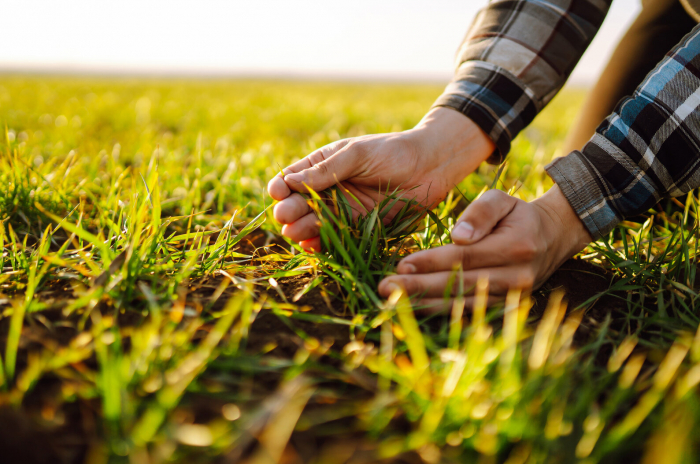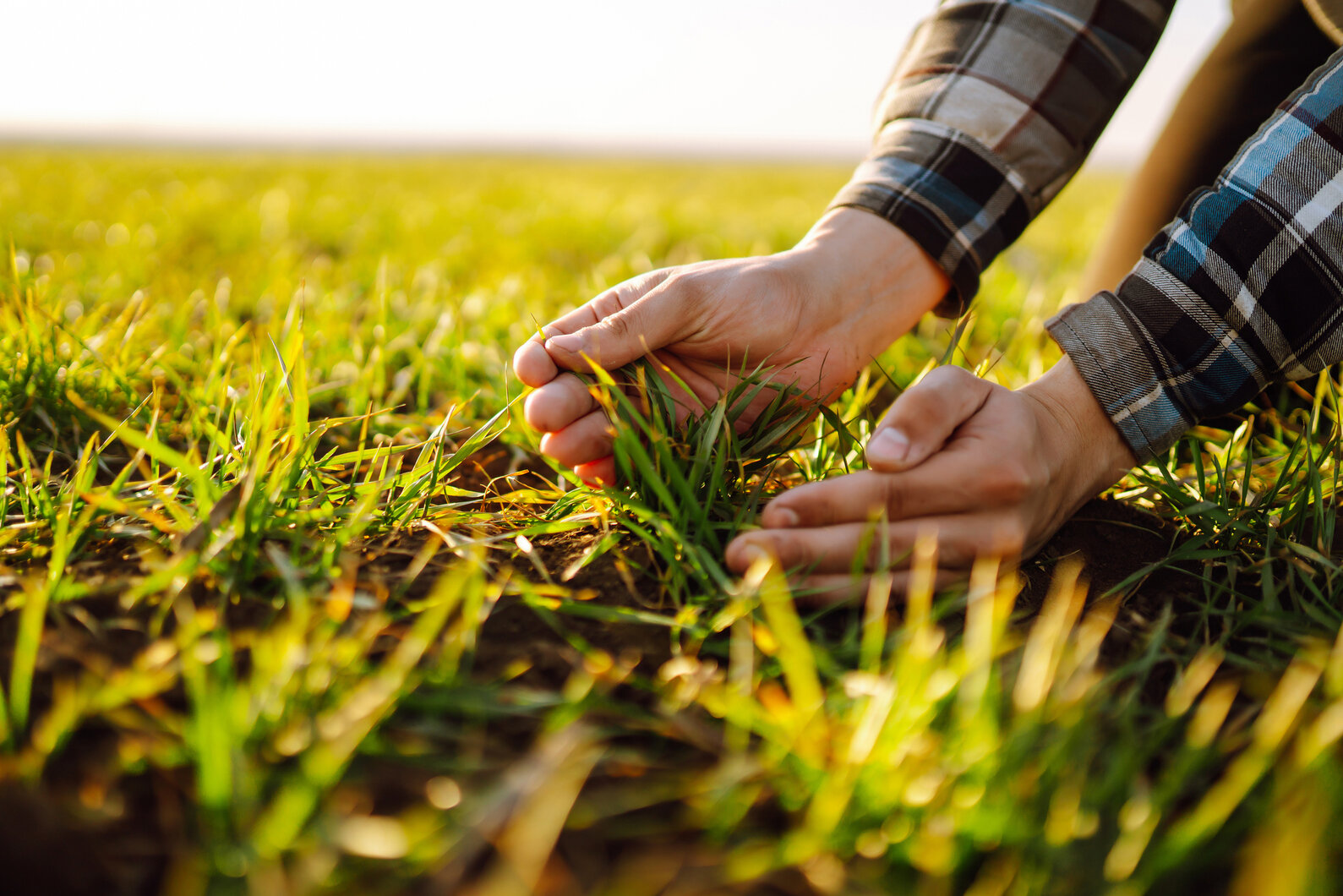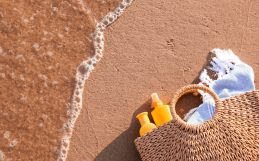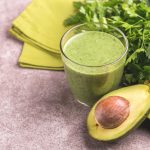If you have a lawn, you’ve probably thought about using chemical pesticides or herbicides at one time or another. After all, having an immaculate, vibrant green chemically upkept lawn is as American as apple pie. But natural lawn care is just as effective (if not more) as toxic chemicals without hurting your health. So in this blog I’m sharing some of my favorite non-toxic lawn care tips with you.
But first, for the readers in the room who don’t have a lawn: you may be wondering why anyone actually uses these chemicals. Pesticides and herbicides are constantly criticized in the media and casual conversation. Yet in the US in particular, it’s more common than not to use chemicals to care for your lawn. Especially since some people belong to HOA’s that have strict rules about lawn appearance and maintenance.
Many people also believe manufacturers’ claims about these chemicals’ “safety” or lack of proven harm (like RoundUp). It’s easy to see a lawn as something minor that won’t impact your health – after all, it’s just aesthetic, right? Unfortunately, the way we care for our lawns has a huge effect on our (and our family’s) health.
This issue is particularly important to me. As a kid, I was hospitalized with extreme asthma and difficulty breathing due to chemicals being used on the neighbors’ lawns. These chemicals triggered a cascade of allergic reactions to everything in my environment, from food to plastic dishware. While other people weren’t reacting as severely as me, I’ve always been the canary in the coal mine when it comes to chemicals and toxins.

And I know I’m not alone in my chemically-caused health issues. Many popular lawn pesticides and herbicides are linked to several types of cancer, immune deficiencies, neurological diseases, and even birth defects (and that’s not even the half of it!).
These chemicals sit on the grass and we touch it. Because let’s be real – who doesn’t love grass? Think back to the times you rolled around in the grass as a kid, or rubbed your hands or face in its green glory. Maybe you inhaled deeply, soaking up its clean grassy scent.
Today, your kids are probably doing the same. There may even be a beloved family pet joining them in their play. The amount of time the average child and animal spends frolicking on a family lawn is the reason why we need to choose the safest lawn care options around.
Popular lawn care chemicals don’t just pose a problem for the safety of our children and pets. They also hurt wildlife, and the runoff from us watering our toxic chemical-covered lawns contaminates the groundwater and larger water sources that we all depend on to survive.
The toxins from these products are also released into the air, contributing to poor air quality. To put it simply, these chemicals cause a lot of damage to us and our environment. So what can we realistically do as environmentally- and health-conscious consumers?
Believe it or not, your lawn can become healthier and more pest-resistant with organic products. The biggest hurdle for most people is finding non-toxic products and methods that work, which is why I’m here to help!
Here are some alternative ways to care for your grass:
- Fertilize with compost. It’s super easy to make your own compost to use on your grass and in your garden, and the benefits are huge. You can also buy it online from an organic retailer.
- Use a natural fertilizer like Medina Growin Green (this is the brand I use at home!) or Best Organic Gardening Store’s Worm Castings to nourish your lawn. You can also check out these brands’ websites for other organic gardening products.
- Buy a natural weed killer. I love this 20% Vinegar Weed and Grass Killer and use it regularly on my lawn. You can also try a neem oil spray like this one.
- Choose a grass that’s native to your area so it’s easier to care for. Native plants are more likely to thrive on their own without needing extra tending. Find a local variety that’s low-maintenance for the easiest upkeep.
- Plant complementary plants or flowers that benefit your soil and crowd out weeds like clover, daffodils, or violets.
- Let your grass grow longer to make it more resistant to weed growth. Longer grass also tends to have deeper roots so you can water it less frequently. It’s a win-win!
- Find an organic lawn care company that services your area. Natural Lawn of America and Sunday Lawn Care are great options.
Now that you’re armed with some non-toxic lawn care knowledge, what’s next? Spread the word and get your friends, family, and neighborhood on board! Try to get them to pledge to use organic fertilizers and weed control. If they don’t like any of the options I’ve shared today (or they aren’t accessible to them), see if you can help them find other options.
Getting our communities involved is an important piece of the puzzle. Moving away from toxic gardening chemicals as a group creates a positive health ripple effect that will benefit us and our local ecosystems.
Here’s to healthier lawns everywhere!
Jo
If you liked this blog, we invite you to join our online community! When you sign up you’ll receive regular healthy lifestyle tips and new recipes. As a welcome-gift, we’ll send you our FREE Conscious Cleanse Guide to Green Smoothies to help you bust inflammation from any environmental toxins with some of our favorite nutritious smoothies.
Welcome! We’re so glad you’re here.






